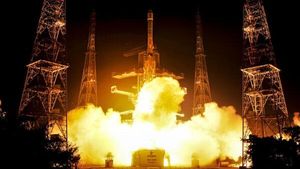The Ukraine conflict continues to escalate with the recent assassination of Armen Sarkisyan, founder of the pro-Russian militia Arbat, who was killed on Monday morning by an explosive device planted near his home in Moscow. Authorities confirmed Sarkisyan succumbed to his injuries after being rushed to intensive care. This targeted killing is viewed as part of broader efforts to destabilize pro-Russian activities amid the continuing hostilities between Ukraine and Russia.
Ukrainian President Volodymyr Zelensky has expressed concerns about the new alliances forming around Russia, particularly with Iran and North Korea, which he regards as direct threats to the United States and its allies. He stated, "These countries, which had previously cooperated on arms and technology, are now openly involved in Russia's war against Ukraine," reported by the Associated Press.
Meanwhile, former President Donald Trump has stirred discussions by proposing to exchange Ukraine's rare earth resources for U.S. assistance to support Ukraine's war efforts. Trump cited these rare minerals, which are pivotal for various technologies and defense applications, as leverage for significant American aid—raising eyebrows among officials. German Chancellor Olaf Scholz quickly responded to Trump’s assertion, contending it would be "very selfish and self-referential" to utilize Ukraine's natural resources only for immediate military support. Scholz emphasized the need for Ukraine to use its resources to finance its long-term reconstruction.
These developments come at a time when Ukraine has ramped up its drone attacks targeting Russian energy facilities. Just over the past weekend, Ukrainian drones struck key installations, including oil refineries and gas processing plants, leading to significant fires and operational suspensions at several Russian airports. Ukrainian officials view these strikes as strategic moves to undermine Russian military logistics, particularly as winter intensifies and energy reliance becomes more challenging.
The assault, particularly on the Volgograd refinery, has been described as sending "a message" to Moscow, demonstrating Ukraine’s resolve to hit back against Russian military capabilities. Ukraine’s command reported these actions were part of broader military operations aimed at significantly degrading Russian capacity, especially as speculation grows about the potential intensification of the conflict.
This substantial uptick of military action aligns with reports of the Russian military's continued efforts to reinforce its positions along the frontlines, particularly as conversations around potential peace frameworks begin to surface. Despite the violence, Zelensky indicated he still perceives room for negotiation, yet emphasized the necessity of guarantees for Ukraine's security: "Peace requires reliable guarantees," he stated, emphasizing the importance of international collaboration against Russian aggression.
On the ground, the assassination of Sarkisyan has brought to light the violence and retaliatory measures occurring within the conflict's muddy waters. Sources from the Russian police have indicated the assassination was well-planned, involving multiple individuals who orchestrated the attack. This reflects not only the stakes involved for leaders like Sarkisyan, who had been actively supporting Russian military efforts but also underlines the increasing volatility surrounding prominent figures operating within and across Ukraine’s eastern regions.
Washington's involvement remains conflicted. Trump described his approach as seeking to broker peace and mitigate the war efforts, asserting, "We’ve made significant progress with both Russia and Ukraine; let’s see what happens,” hinting at potential diplomatic meetings on the horizon. Yet, the recent assassination and engaging drone warfare signify roles filled not with diplomacy, but with violent confrontations.
Scholz's comments during the recent EU summit reflect apprehensions about Ukraine's resources and their use during and post-conflict. Leaders caution against using these resources merely as pawns for immediate military assistance rather than as tools for long-term rebuilding efforts. This call for strategic foresight seems even more pertinent as the situation remains unpredictable and fraught with potential shifts.
Analysts and military commentators are observing these developments closely, as they may signal the direction of both the conflict and international response strategies aimed at reining in Russia's militaristic ambitions. Every day is now deemed increasingly consequential, even for neutral bystanders drawn unwittingly close to frontline skirmishes.
Ukraine must navigate these waters cautiously, balancing engagement and international support, especially as voices within Europe call for enhanced military collaboration and assistance to fortify defenses against Russian incursions. Future steps taken by allies will play an equally significant role as Ukraine plots its course against overwhelming odds and complex global individual alliances involved.
This complex interplay of violence, international negotiations, and resource management showcases the multifaceted nature of the present conflict—not merely as one of territorial disagreements but as one demanding acute strategic reflexes from both the combatants and those observing from the periphery.



